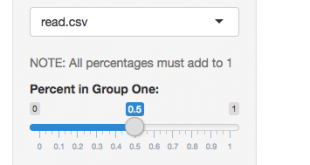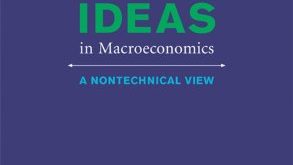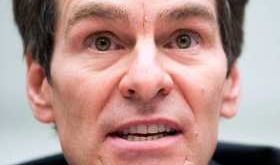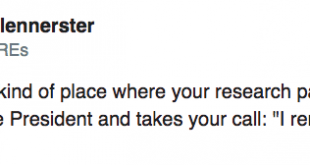Guest post by Jeff Mosenkis of Innovations for Poverty Action. South Africans, trying to come to grips with the astonishing scale of the crisis, have adopted a once-obscure political science term, “state capture,” as a staple of even casual conversation … Yet previous examples of state capture have almost always involved a broad cast of protagonists: an entire industry, for example, or wealthy businessmen as a group. In South Africa, it may have been pulled off by a single...
Read More »Macroeconomics — religion or science?
Macroeconomics — religion or science? Macroeconomists build theories codified by systems of equations. We use those equations to explain patterns in economic data. Unlike experimental sciences, chemistry and physics for example, macroeconomists cannot easily experiment. That does not mean that we cannot challenge existing theories, but it makes it much harder. Like astronomers waiting for the next supernova to explode; macroeconomists must wait for big...
Read More »Big — and not so big — ideas in macroeconomics
Big — and not so big — ideas in macroeconomics In Athreya’s world, and that of a large part of the academic macroeconomics profession, macroeconomics does indeed begin with Walras, and the first modern development in the field was the formalization of Walras’ model by the economic theorists Arrow, Debreu and MacKenzie in the 1950s. The big subsequent development is the integration of growth theory into the static ADM framework to generate the modern dynamic...
Read More »The ‘tiny little problem’ with Chicago economics
The ‘tiny little problem’ with Chicago economics Every dollar of increased government spending must correspond to one less dollar of private spending. Jobs created by stimulus spending are offset by jobs lost from the decline in private spending. We can build roads instead of factories, but fiscal stimulus can’t help us to build more of both. This form of “crowding out” is just accounting, and doesn’t rest on any perceptions or behavioral assumptions. John...
Read More »If it’s Doable, it’s Affordable
Modern Monetary Theory (MMT) continues to make inroads into the mainstream discourse with the appearance of an article by Youssef El-Gingihy in The Independent Online. The article features MMT in connection with the new book by Bill Mitchell and Thomas Fazi, Reclaiming the State. At its recent rate of dissemination, MMT may transition from heterodox to mainstream ahead of expectations. Although the finer points of MMT can get quite involved, the most basic takeaway is very simple. For...
Read More »Berlin
Rumour has it that yours truly is celebrating his 60th birthday visiting his favourite town. Regular blogging to be resumed next week. [embedded content] div{float:left;margin-right:10px;} div.wpmrec2x div.u > div:nth-child(3n){margin-right:0px;} ]]> Advertisements
Read More »IPA’s weekly links
IPA has an opening for a Country Director for our Sierra Leone and Liberia offices (above photo comes from the former). A lot of interesting projects are happening there and our offices there have historically worked very well with the governments. I’ll let Rachel Glennerster describe it: But the best reason is the amazing staff, here’s Jishnu Das talking about the Liberia office’s recent high profile RCT of public-private partnership schools there: Finding children who have left a school...
Read More »IPA’s weekly links
IPA has an opening for a Country Director for our Sierra Leone and Liberia offices (above photo comes from the former). A lot of interesting projects are happening there and our offices there have historically worked very well with the governments. I’ll let Rachel Glennerster describe it: But the best reason is the amazing staff, here’s Jishnu Das talking about the Liberia office’s recent high profile RCT of public-private partnership schools there: Finding children who have left a...
Read More »IPA’s weekly links
IPA has an opening for a Country Director for our Sierra Leone and Liberia offices (above photo comes from the former). A lot of interesting projects are happening there and our offices there have historically worked very well with the governments. I’ll let Rachel Glennerster describe it: But the best reason is the amazing staff, here’s Jishnu Das talking about the Liberia office’s recent high profile RCT of public-private partnership schools there: Finding children who have left a school...
Read More »Post Keynesian frog
[embedded content] div{float:left;margin-right:10px;} div.wpmrec2x div.u > div:nth-child(3n){margin-right:0px;} ]]> Advertisements
Read More » Heterodox
Heterodox






